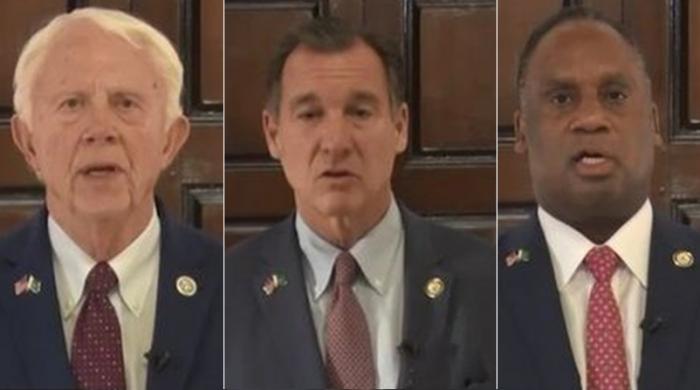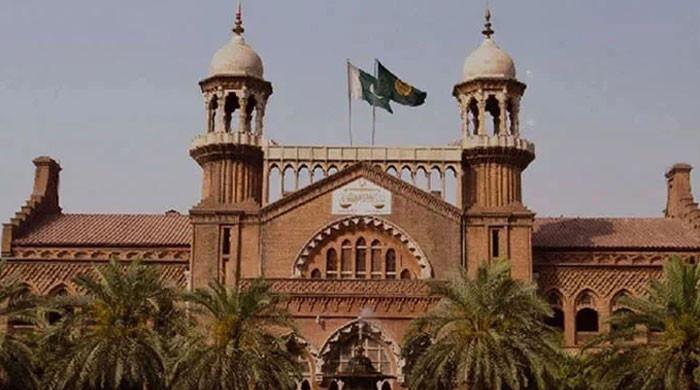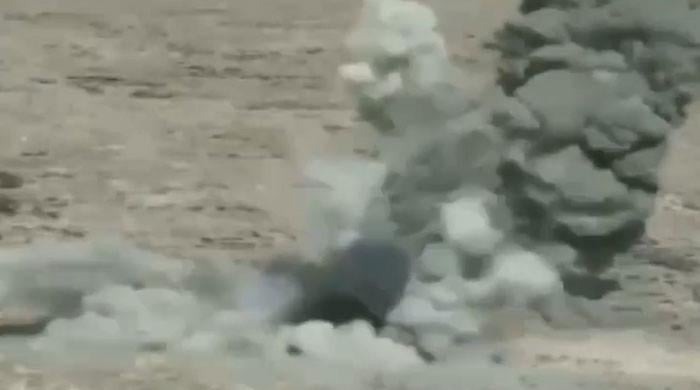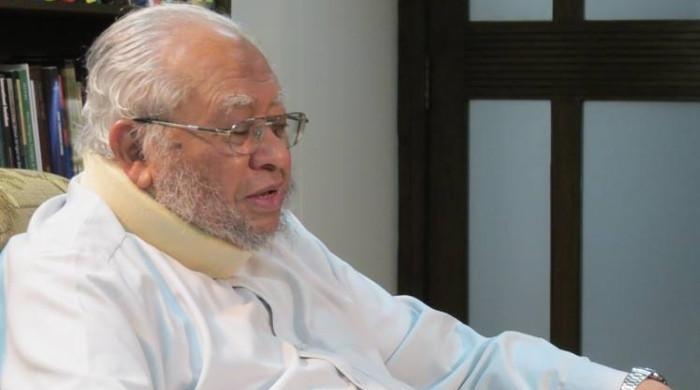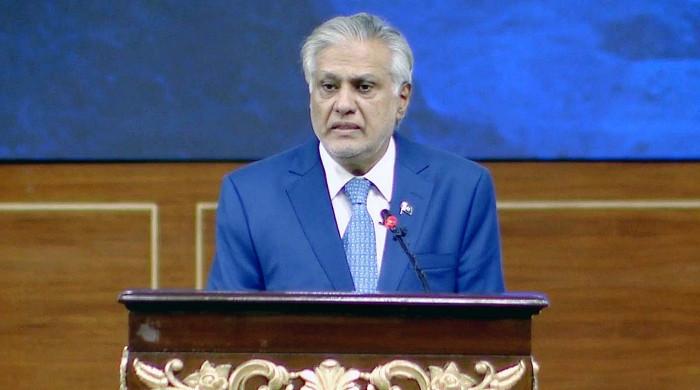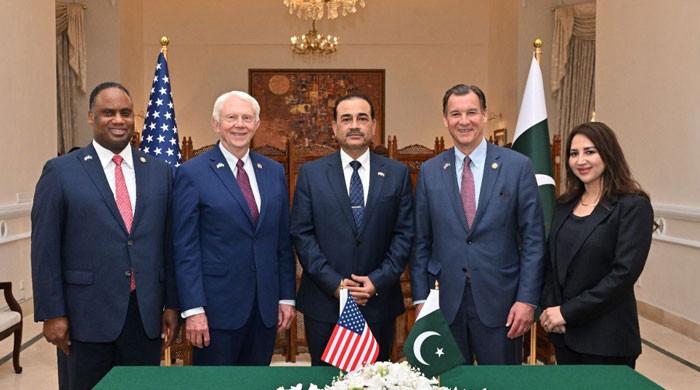Shehbaz Sharif takes oath as prime minister of Pakistan
Senate Chairman Sadiq Sanjarani administers the oath to Shehbaz Sharif
April 11, 2022
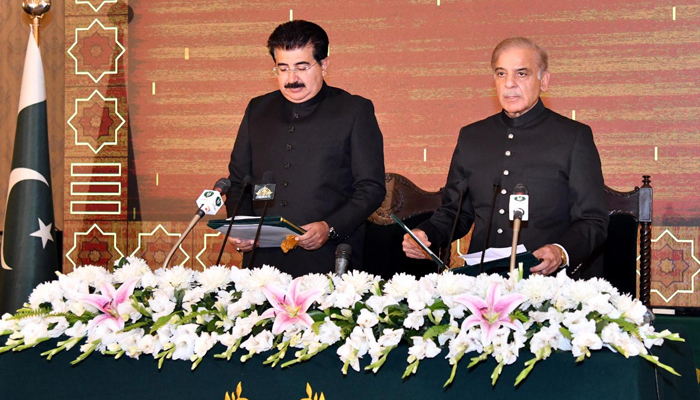
- Senate Chairman Sadiq Sanjarani administers the oath to Shehbaz Sharif.
- Shehbaz was elected as the premier after the ouster of PTI Chairman Imran Khan.
- President Alvi missed the ceremony after he complained of "discomfort".
ISLAMABAD: Shehbaz Sharif took oath on Monday as the 23rd prime minister of Pakistan.
He was administered the oath by Senate Chairman Sadiq Sanjarani as President Arif Alvi complained of "discomfort", according to the president's Twitter account, hours before the oath-taking ceremony.
Shehbaz was elected as the premier after the ouster of PTI Chairman Imran Khan through a no-confidence motion.
Earlier in the day, Shehbaz secured 174 votes in the NA as opposed to PTI's candidate Shah Mahmood Qureshi, who received no votes after his party decided to boycott the polling process.
Read more: Shehbaz Sharif raises minimum wage of govt employees to Rs25,000
The poll took place under the chairmanship of MNA Ayaz Sadiq, two days after the lower house of Parliament voted in favour of removing Imran Khan from office, following a nearly 14-hour standoff between the Opposition and Khan's ruling party that started on Saturday morning.
Shehbaz's profile
Shehbaz is the longest-serving chief minister of the Punjab province, having served on the post three times since he began his political career nearly four decades ago.
Sharif is the son of Mian Muhammad Sharif, a well-known businessman, and the younger brother of Nawaz Sharif, the former prime minister of Pakistan.
Shehbaz is a graduate of the Government College in Lahore. He first came into the spotlight in 1985, when he was appointed the president of the Lahore Chamber of Commerce and Industry.
Read more: Shehbaz Sharif — 34 years in politics, 3 times CM, first time prime minister
But his foray into politics began in 1988 when Sharif was elected as a member of the Punjab assembly (MPA). He served for a short stint, till 1990 when the assembly was dissolved.
The same year, he contested and won a national assembly constituency and became a member of the lower house of Pakistan’s parliament. In 1993, he again returned to the Punjab assembly and was appointed leader of the opposition till 1996.
Then in 1997, Sharif won a Punjab constituency for the third time and went on to become the chief minister of Punjab, Pakistan’s most politically important province. However, after the military overthrew the PML-N government, Sharif was imprisoned and later sent into exile for eight years.
Returning in 2008, Sharif was again elected as a member of the Punjab assembly and then became chief minister for a second term. This time he served his full term as chief minister.
Read more: Shehbaz Sharif's potential cabinet picks
After the general polls in 2013, Sharif returned as chief minister of his home province. While in the 2018 polls, he decided to retain his national assembly seat and was nominated as the leader of the Opposition.
In 2019, Shehbaz Sharif declared his net wealth to be Rs100,725,909 to the Election Commission of Pakistan (ECP), including investments in Hudabiya Engineering, Hamza Spinning Mills and Hudabiya Paper Mills as well as agricultural properties in Sheikhupura and Lahore.




